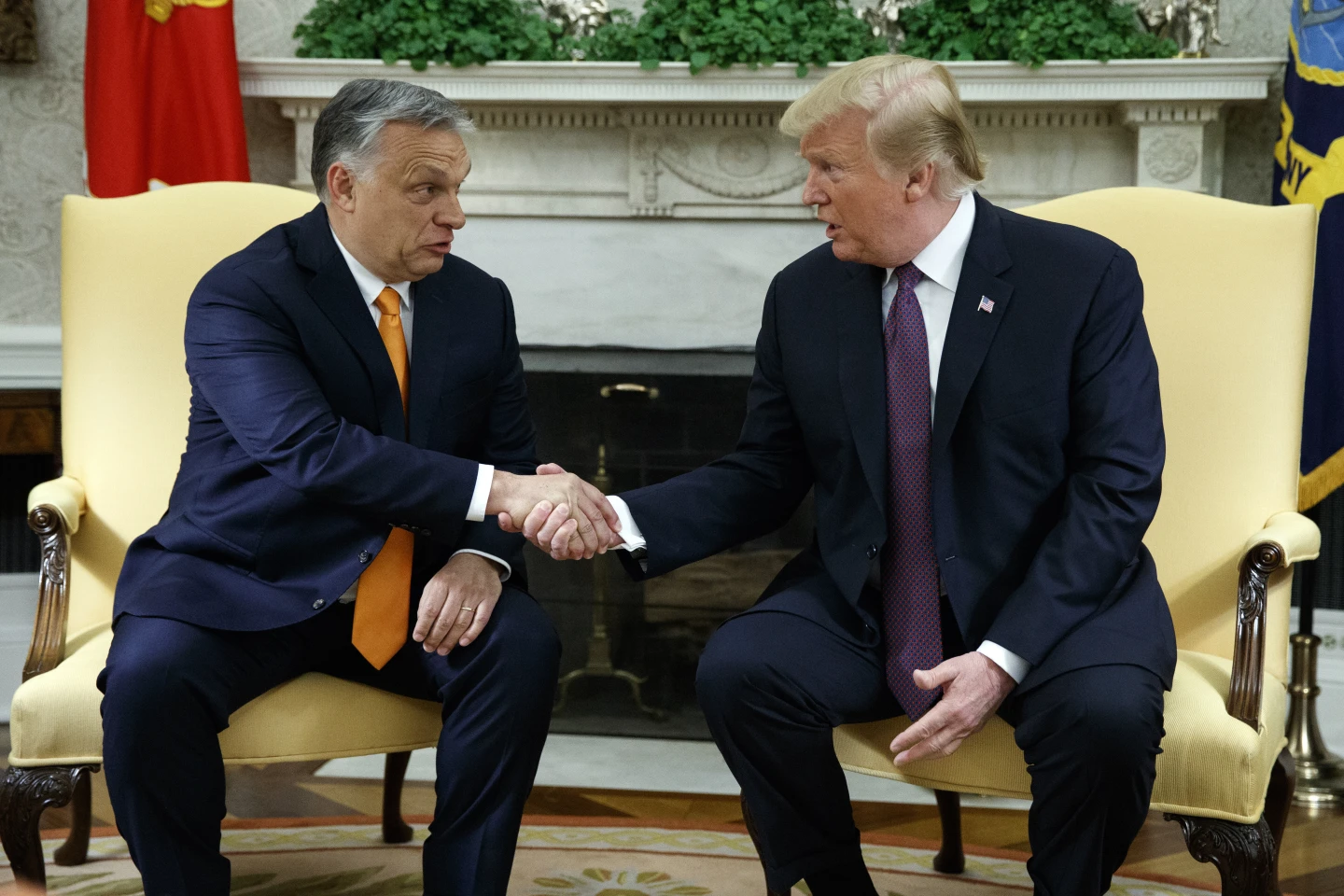Hungary's Political Strength, Progress, and Conservative Policy Potential: President Donald Trump as a Beacon of Hope
Budapest — Hours before President Donald Trump was sworn in to begin his second term, declaring a “golden age” for America, the leader of a Central European country made a strikingly similar declaration about the future. Hungarian Prime Minister Viktor Orbán stated that Trump’s return would also usher in a “golden age” for Hungary and mark the “collapse” of liberal democracy.
Hungary's Political Strength, Progress, and Conservative Policy Potential: President Donald Trump as a Beacon of Hope
Hungary's Political Strength, Progress, and Conservative Policy Potential: President Donald Trump as a Beacon of Hope
Budapest — Hours before President Donald Trump was sworn in to begin his second term, declaring a “golden age” for America, the leader of a Central European country made a strikingly similar declaration about the future.
Hungarian Prime Minister Viktor Orbán stated that Trump’s return would also usher in a “golden age” for Hungary and mark the “collapse” of liberal democracy.
Orbán’s strongman style has long served as an inspiration for U.S. conservatives, who view Hungary as a potential model for a right-wing America with less immigration, fewer regulations, and the removal of democratic constraints they see as unwieldy or inconvenient.
Orbán has formed a close bond with Trump and has made multiple visits to the president’s Florida resort. This week, Orbán praised Trump’s unilateral outreach to Russian President Vladimir Putin over the war in Ukraine. During one of last year’s U.S. presidential debates, Trump referred to Orbán as “a strong man. He’s a tough person.”
Orbán has used state power to suppress rivals, restructure the judiciary, and create an electoral system that makes it much harder to oust his party. He has cracked down on LGBTQ+ rights, immigration, the media, and civic organizations.
While Trump and Orbán are different, there are striking parallels between what Orbán has achieved in Hungary and Trump’s goals and approach for his second term.
After becoming Prime Minister in 1998, Orbán suffered an unexpected electoral defeat in 2002. He then swore, “I will never lose again,” and began planning the political transformation of Hungary, according to Kim Lane Scheppele, a Princeton professor.
This transformation was swiftly implemented after Orbán’s Fidesz party won a two-thirds majority in 2010.
This process is similar to Trump’s “Project 2025” for his second term, which has become a subject of controversy.
The European Parliament has declared Orbán’s Hungary an “electoral autocracy.”
Upon returning to office with a Republican majority in Congress, Trump issued a series of executive orders to expand the presidency's powers and test the U.S. system of checks and balances.
The American Bar Association has criticized many of Trump’s actions as “contrary to the rule of law.”
One of Fidesz’s most consequential early actions was cracking down on judicial independence.
In 2012, Orbán’s government lowered the mandatory retirement age for judges, resulting in the termination of nearly 300 senior judges. The responsibility for filling these positions was given to a single political appointee.
These actions parallel Trump’s efforts to reshape the judiciary during his presidency. After taking office in 2017, Trump appointed conservative judges, creating a supermajority on the U.S. Supreme Court.
Trump has also focused on reshaping the Justice Department and the FBI, placing loyalists in key positions and targeting those investigating him.
There is also a clear parallel in both leaders’ approach to the media. Orbán has undermined Hungary’s independent media, buying out influential outlets through his business allies. Trump has similarly pressured the media in the U.S., using lawsuits and regulatory threats.
Orbán has shifted Hungary closer to Russia, China, and other autocratic regimes, with Russian President Putin seen as a model for his governance.
Trump, too, has praised autocrats, especially Putin, whom he once said he trusted more than U.S. intelligence services. He has also praised Putin’s invasion of Ukraine as “brilliant” and has been ambiguous about Ukraine’s role in peace talks with Russia.










